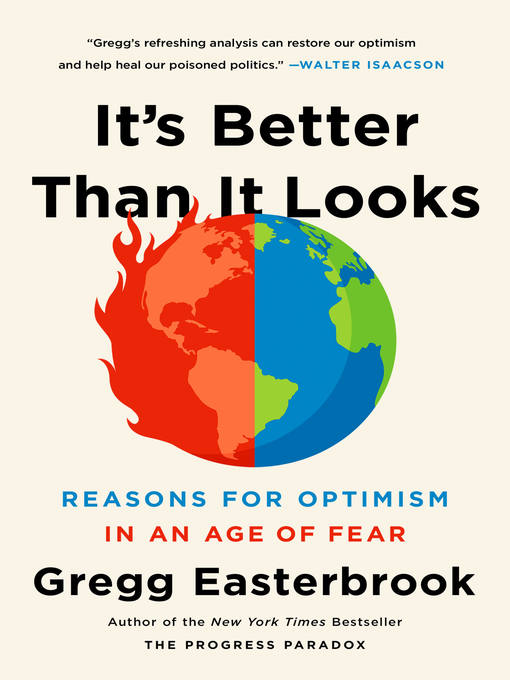
It's Better Than It Looks
Reasons for Optimism in an Age of Fear
کتاب های مرتبط
- اطلاعات
- نقد و بررسی
- دیدگاه کاربران
نقد و بررسی

February 1, 2018
Cheer up, world: we're killing each other less, except in our cars, and living in a boom. Thus this contrarian pep talk by longtime Atlantic contributor Easterbrook (The Game's Not Over: In Defense of Football, 2015, etc.).Optimism is out of style, but by the author's account, it shouldn't be. When Donald Trump came into office, the unemployment rate was low enough that the number "would have caused economists of the 1970s to fall to their knees and kiss the ground." Just so, crime is down almost everywhere, inflation is low, food cheap, fuel abundant despite dire warnings of peak resources. Even so, writes Easterbrook, Trump rose on a wave of warnings that America was going to hell in a handbasket, and he had a willing audience that accepted his dire admonitions without question. Why? Well, argues the author usefully, nations as well as people feel their age, and an aging society is naturally going to subscribe to the "declinist" view that things now are worse than when they were in its youth. One has only to go to an American city to see that things are vibrant, blessedly quiet compared to the clamor of a city in the developing nations, and blessedly pollution-free compared to other parts of the world. In his somewhat scattershot argument enumerating all the good things that are going on, though, Easterbrook sometimes inadvertently offers support for the gloomy view. For instance, while it may not be true that American jobs are being shipped off to China, it is true that in China, the same jobs no longer exist for humans because robots are doing them. That gloomy view is unhealthy, he suggests, especially in its Trumpian manifestations of white victimhood, which has little basis in reality but still channels those declinist feelings into widespread aggrievement.Easterbrook's assurances, however well-based, will ring hollow for many, but it's an argument worth considering.
COPYRIGHT(2018) Kirkus Reviews, ALL RIGHTS RESERVED.

February 15, 2018
In assessing the state of current society, Easterbrook (The Progress Paradox) doesn't predict disaster, but he isn't overly optimistic either. The author maintains that human civilization faces real problems and that threats can surface unexpectedly. While bald eagles are no longer endangered and forests are advancing, not retreating, we are producing more food on less land and obesity has replaced starvation as the most common health risk across the globe. Easterbrook challenges politicians promising a return to the "good old days," and politician Bernie Sanders's statement that Americans are being "poisoned" by pollutants caused by corporate greed. The author continues that, compared to a century ago, Western societies have the benefit of better access to education, food resources, and health care; an increased life expectancy; end even improved air and water quality. Despite threats to political stability, he concludes, we are still making progress. But on political balance, Easterbrook argues that we have reason to feel hopeful, not least because of our resourcefulness in solving past problems. VERDICT A well-written account of a pertinent topic; readers will flock to this book.--David Keymer, Cleveland
Copyright 2018 Library Journal, LLC Used with permission.

























دیدگاه کاربران